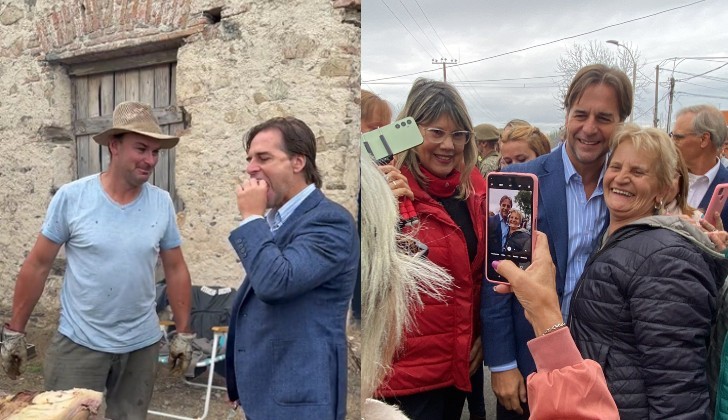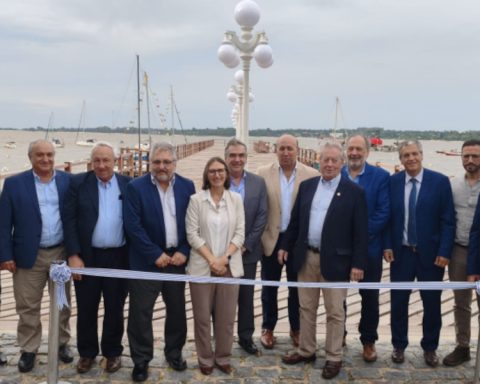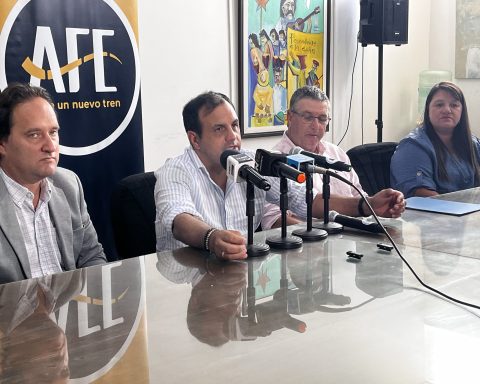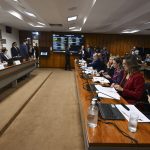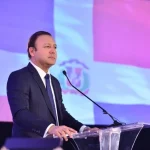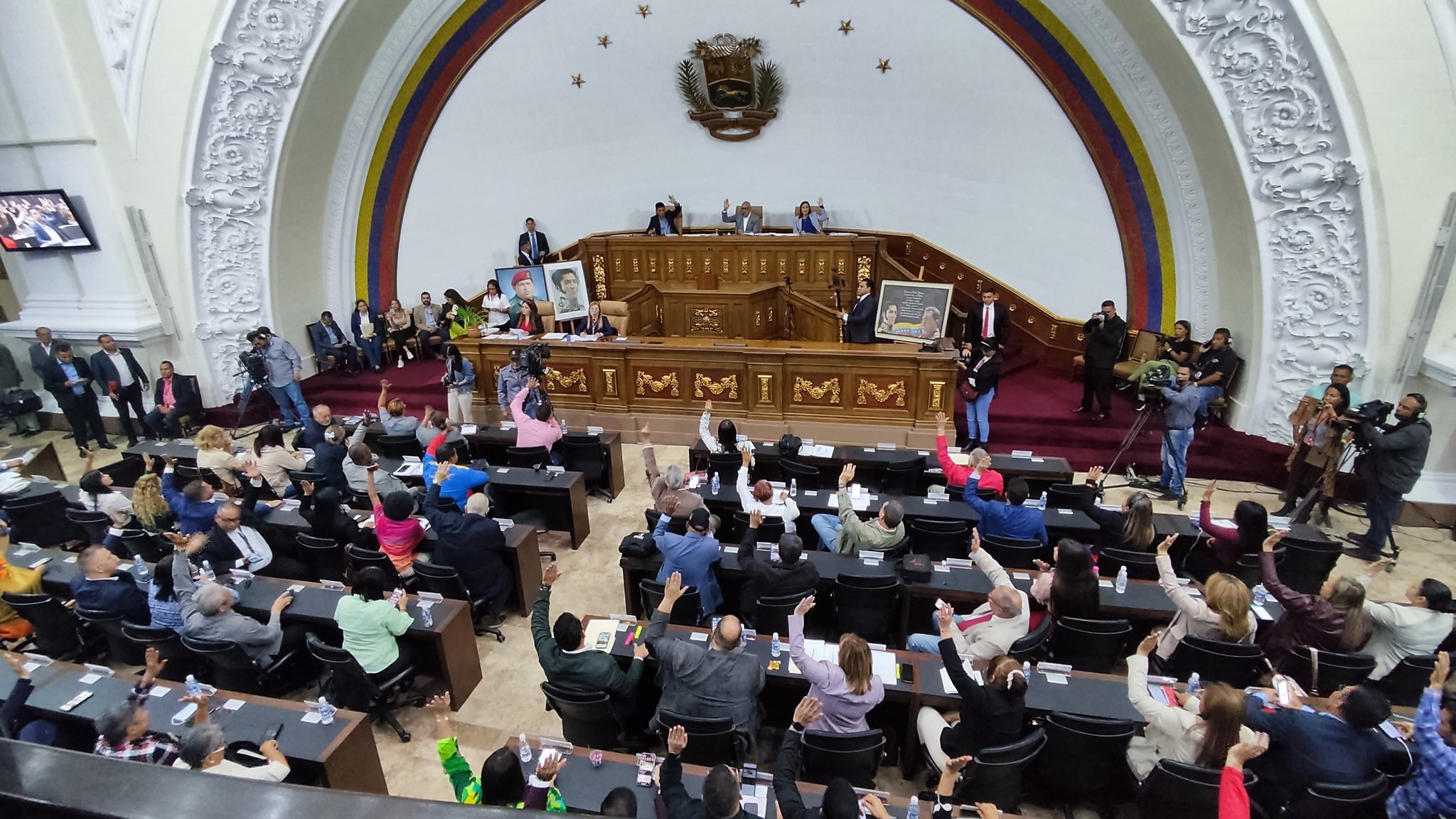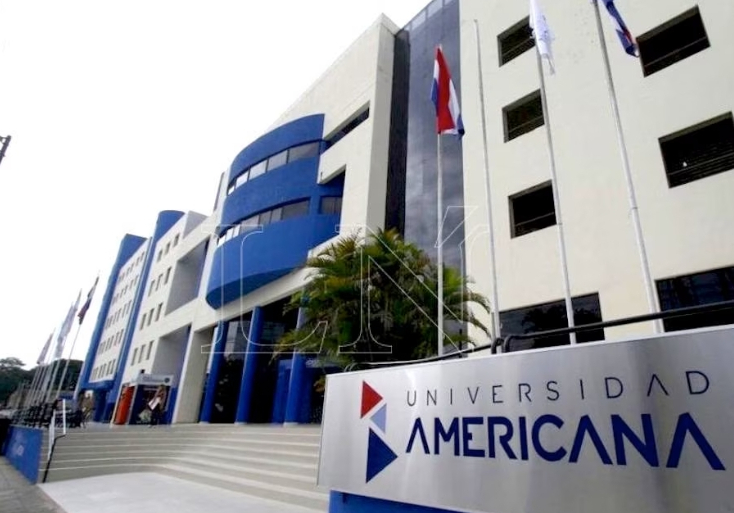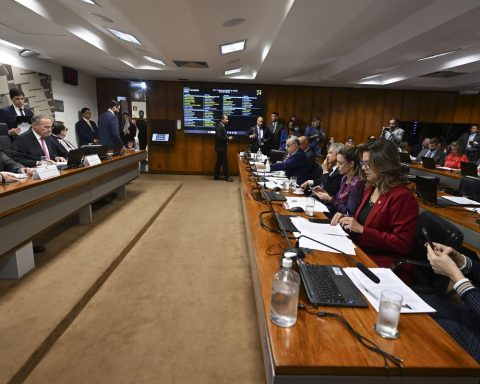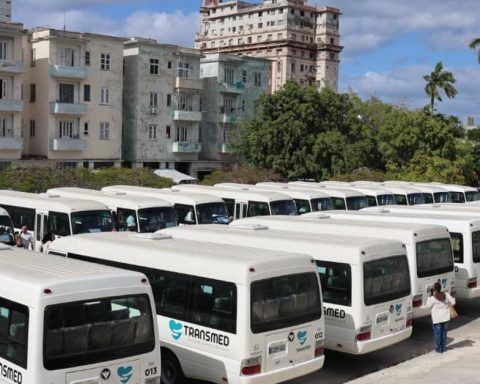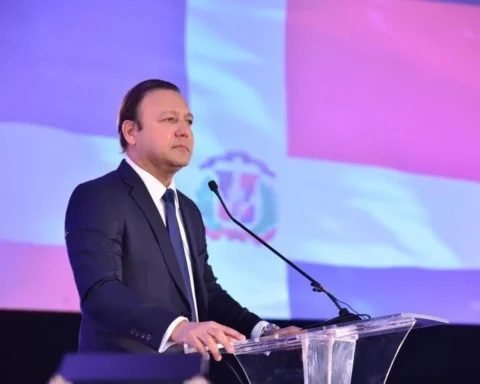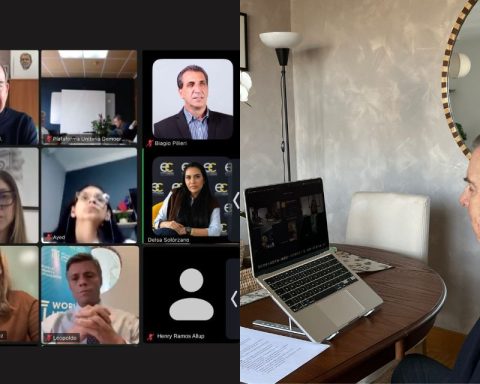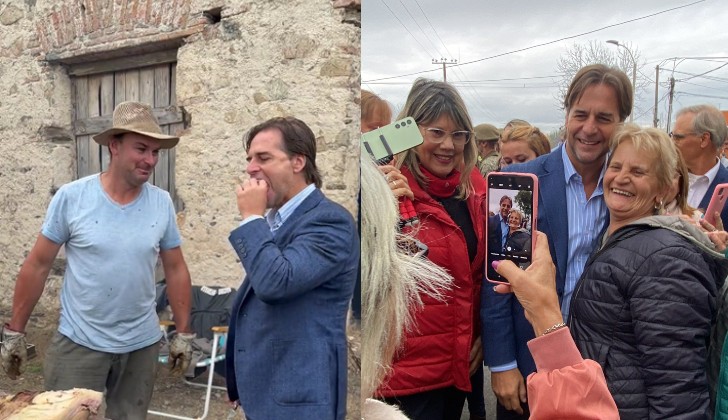
While in Montevideo the march of silence, the government kept -ironically- silent about it. From the Executive Branch there was not a single allusion to the great silent walk on Saturday that toured the center of Montevideo, or to the more than 70 documented in the interior of the country that demanded truth and justice.
On Saturday, the President of the Republic, Luis Lacalle Pou, reappeared after several days with little public activity and even fewer publications on social networks. He was seen passing by the Cabaña Paullier, in the town of Ecilda Paulier, a town that celebrated its 140th anniversary on Saturday. Surrounded by supporters, and in front of a table full of large pieces of meat fresh from the grill, the president he cut a couple of pieces with a knife and tasted them and then greeted the grills affably.
In Ecilda Paullier, dozens of photos were also taken with the locals, as is customary: selfies are mandatory wherever the president passes by.
The parallelism is made before the claim that, once again, the national government did not publicly manifest itself in favor of the March of Silence. This detaches the president from his own political strength, the National Partywhich did issue a video in which various leaders and senior officials called for truth and justice.
Relatives of the Disappeared see little will from the current government
Despite this declarative approach on the part of the government, human rights organizations point out the lack of concrete progress in the search for the disappeared.
They emphasize that the last body found was in 2019 and demand that the government respond to the popular outcry and take concrete measures to demand that the Armed Forces reveal the whereabouts of loved ones.
“We are waiting for the government to echo this popular demand and to take the measures, to demand that the Armed Forces say where are our relatives. Really, for a democratic country, it is difficult to understand why our relatives continue to be kidnapped after so many years,” Ignacio Errandonea said at a press conference last Saturday.
The project to liberalize the information of the dictatorship
Last Thursday, the government sent Parliament a bill to set a section in the General Archive of the Nation aimed at collecting, organizing and preserving documents related to the recent past and human rights violations.
The text, made up of a few articles, mentions the “Berrutti file” and others that may be obtained in the future, but does not specify the criteria that will be used to determine which documents will be included. In its second article, the project establishes that access will be free, “without prejudice to the confidentiality of information related to the private life and family environment of people, as well as information that may be considered sensitive or that may affect third parties” . In addition, the third article states that, together with the Agency for Electronic Government and the Information and Knowledge Society (Agesic), the Necessary mechanisms for the online publication of the contents.
The sending of this project motivated the Minister of Defence, javier garciato affirm that this government has been the one that has provided “more information” to journalists and human rights organizations, since it is committed to truth and transparency.
With these words, García also responded to the president of the Broad Front, Fernando Pereira, who had asked to be “careful” to No violating “the privacy of the victims of State terrorism”.
Pereira expressed this Saturday in an interview with Telemundo: “The files contain issues with which we must be careful. Above all, they contain personal information of the victims of state terrorism. We must care for the victims of state terrorism, not expose them. By providing this material to Justice, also we must care for those who were victims and could be revictimized”.
